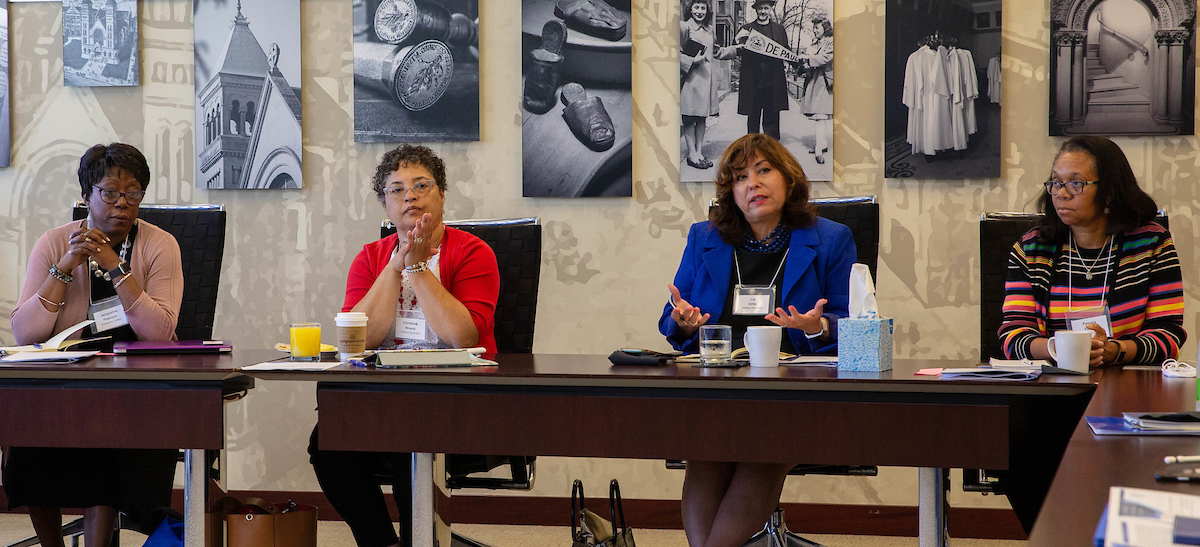 Elizabeth Ortiz, third from left, vice president of Institutional Diversity and Equity at DePaul, speaks during the first meeting of the Consortium of Catholic Diversity Officers in Higher Education. The convening was held in August on the Loop Campus. (DePaul University/Maria Toscano)
Elizabeth Ortiz, third from left, vice president of Institutional Diversity and Equity at DePaul, speaks during the first meeting of the Consortium of Catholic Diversity Officers in Higher Education. The convening was held in August on the Loop Campus. (DePaul University/Maria Toscano)
This summer, DePaul collaborated with the University of Notre Dame to launch a
consortium of Catholic and faith-based diversity officers in higher education
. The group held its first convening on DePaul’s Loop Campus in August to discuss the incorporation and intersection of mission, Catholic values and faith in diversity and inclusion work.
Twenty-two diversity professionals and religious leaders from universities across the country attended the two-day summer retreat. The group used
a pastoral letter on racism, issued by the United States Conference of Catholic Bishops, as a vehicle for the discussion.
“We wanted to use this letter as the starting point of an ongoing conversation regarding what it means to incorporate Catholic social justice teaching and institution mission in the work of diversity and inclusion in higher education and, in particular, on our campuses," says Pamela Young, director for academic diversity and inclusion at Notre Dame and a co-organizer of the group.
According to Liz Ortiz, vice president of Diversity and Equity at DePaul and a co-organizer of the group, the retreat served as more than a one-time opportunity to discuss diversity and inclusion through the lens of Catholic education.
“Participants developed a comradery. We shared similar experiences, discussed strategies for driving institutional change and the importance of developing a network to provide advice when needed,” she says. “With that comradery comes the ability to also share best practices, whic can eventually lead to some standard and consistency among Catholic colleges regarding diversity and inclustion. Finally, we hope to be able to push the envelope on thought leadership on what it means to exist in this era and space of faith, diversity and inclusion. We want to be able to guide Catholic higher education to where it needs to be.”
With a network and infrastructure now in place, the group plans to gather officially once a year. Though still in the early stages of formalization, in the coming months the consortium plans to develop a mission, vision and objectives.
“We do believe deeply in human dignity and the service of others,” Ortiz says. “But it’s what we do in action – the structures we put in place – that are instrumental to the future. We hope this group will be a vital part of the future of diversity and inclusion in Catholic higher education.”